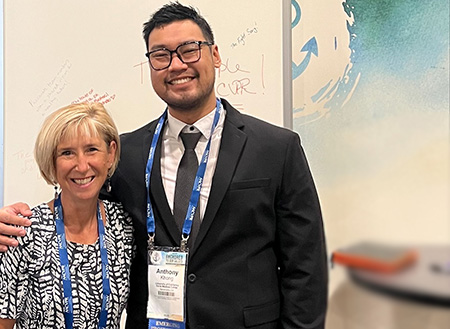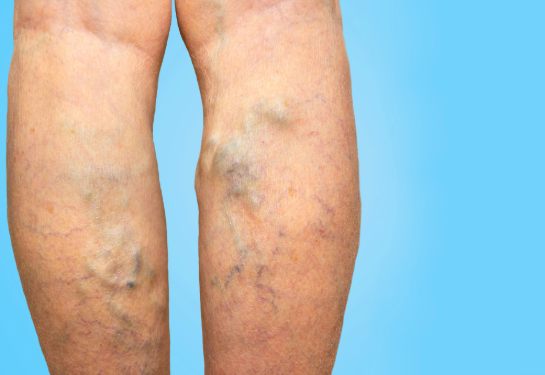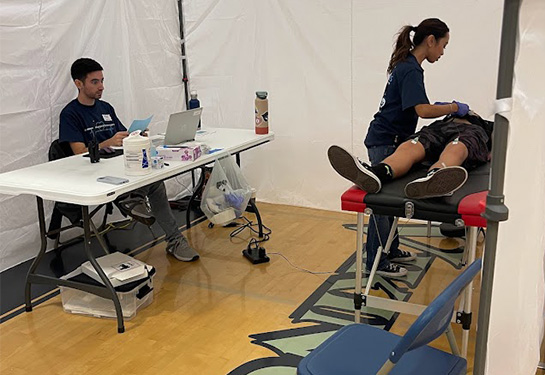UC Davis cardiac rehab team receives national award for research on virtual rehab
A multidisciplinary team from the UC Davis Cardiac Rehabilitation Program and UC Davis Health's Division of Cardiovascular Medicine received an abstract award for their research at the American Association of Cardiovascular and Pulmonary Rehabilitation's 37th annual meeting.

The abstract was titled “Medical Disruptions During Center-Based Cardiac Rehabilitation: A Necessary Appraisal for the Development of Emerging Remote and Virtual Care Models.” It was presented by Anthony Khong, a third year resident in the Department of Internal Medicine, and Margaret Junker, registered dietician and certified diabetes care and education specialist in the UC Davis Cardiac Rehabilitation Program and Cardiology clinics.
This team is mentored by Javier E. López, medical director of the Cardiac Rehabilitation Program and principal investigator for the study. Other UC Davis Health co-investigators include Nina Liu, Shaun Giancaterino, Rachel Labiak, Elizabeth Cortez-Toledo, Alejandra Galina Bernal Fausto, Humberto Andrade and Christopher Chen.
The study assessed guidelines for handling disruptions during new home-based cardiac rehabilitation models. They were based on the frequency and type of disruptions patients experience during in-center cardiac rehabilitation.
Cardiac rehabilitation is an evidence-based intervention that educates patients on healthy lifestyles, behavior modification and exercise training to improve outcomes in patients with cardiovascular disease.
“Cardiac rehabilitation programs reduce morbidity and mortality rates in adults with cardiovascular disease but are significantly underused, with only a minority of eligible patients participating in cardiac rehabilitation in the U.S.,” Khong explained. “Home-based or virtual cardiac rehabilitation is an emerging model that relies on remote coaching with indirect exercise supervision and has the potential to improve access and enrollment.”
However, sometimes exercise during cardiac rehab can lead to glycemic disruptions (abnormal changes in the blood glucose), or rarely, to a dangerous heart rhythm, chest pains or other disruptions.
“If this happens in a cardiac rehab center, staff are there to treat and educate the patient right away,” said Khong. “But how do you handle this situation in a remote setting? That is what we tried to address with our research.”
The team reviewed 5,038 consecutive sessions (251 patients) of comprehensive, in-center cardiac rehabilitation over a three-year period. They analyzed the frequency and type of disruptions tallied per session, patient characteristics and other health conditions to evaluate the root cause of disruptions.
Their research showed:
- Events are common, as 50% of patients experienced at least one disruption
- Glycemic events accounted for 71% of disruptions vs. other cardiac events (29%)
- Diagnosis of diabetes was strongest predictor for disruptions
- Patients mostly experienced disruptions during their first 12 sessions (66%)
- Insulin and/or sulfonylureas use was highly correlated with disruptive events
“Based on our findings, we concluded patients living with diabetes had higher disruptions due to glycemic variability - especially patients on insulin and sulfonylureas,” Junker explained. “Therefore, when planning for home-based cardiac rehabilitation it is paramount to assess glycemic control through education, glucose monitoring and medication adjustments.”
The researchers suggested that these patients should continue to be followed closely and future studies could support a hybrid care model for patients living with diabetes.



